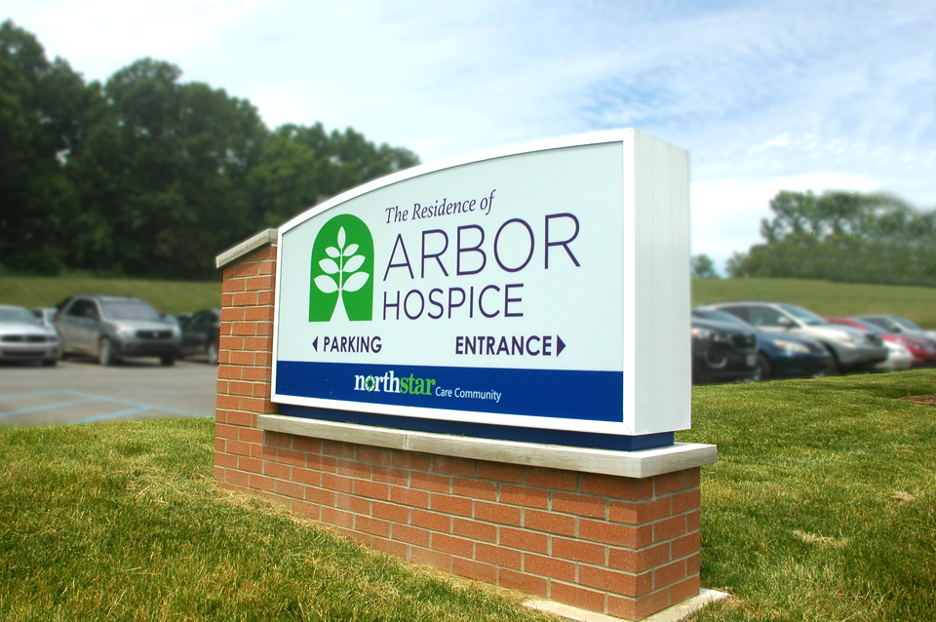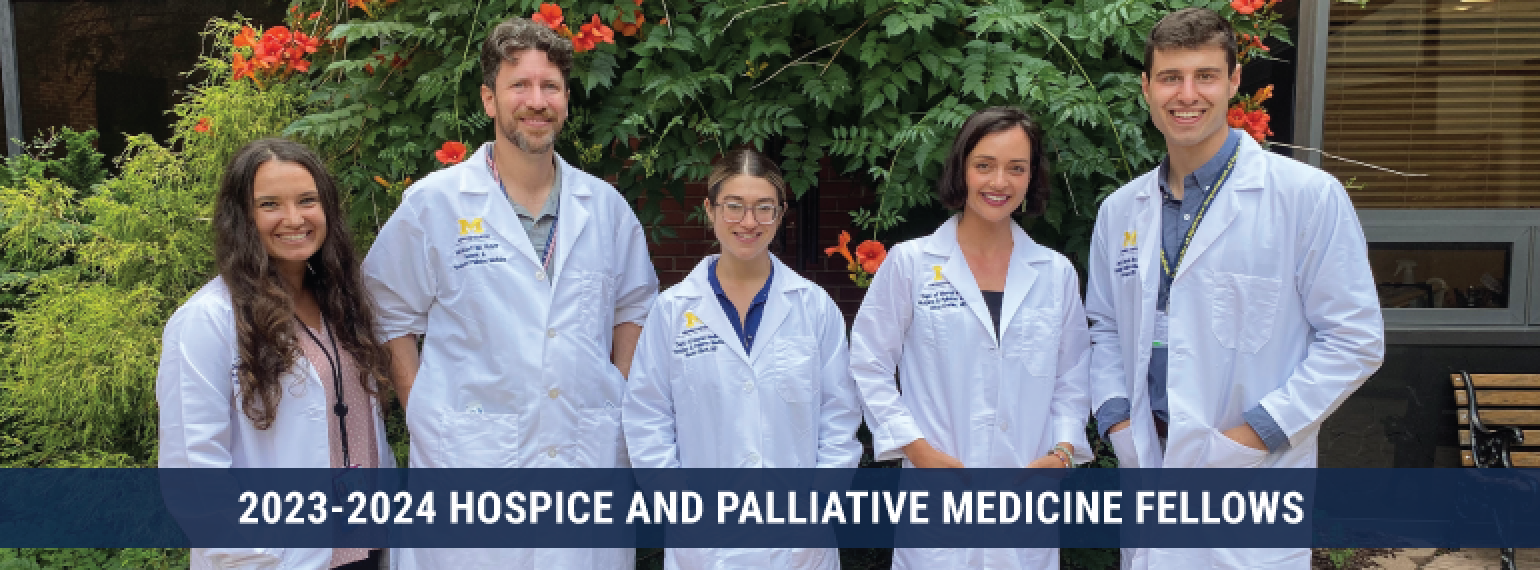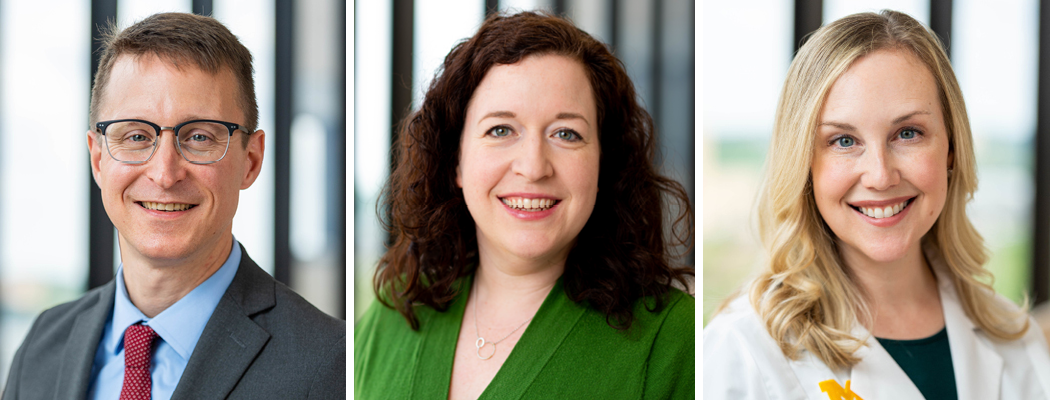The Michigan Medicine Hospice and Palliative Medicine (HPM) Fellowship, led by Director Adam Marks, MD, MPH, and Associate Directors D'Anna Saul, MD and Laura Taylor, MD, MSc, is a one-year program that promotes excellence in HPM medicine. With the objective of developing experts and leaders in the field, and ensuring that patients with serious illness receive informed, expert, and appropriate care, the program offers a wide variety of clinical rotations, educational experiences, and scholarly/research opportunities.
Trainees work with highly qualified, interdisciplinary faculty to prepare for a career in palliative medicine with an emphasis on academic and clinical practice. Fellows will be eligible to obtain board certification in hospice and palliative medicine at the completion of their one year of training.
DEI and Well-Being
The Department of Internal Medicine (DOIM) Division of Geriatric and Palliative Medicine is committed to creating and cultivating a diverse and inclusive community that provides our faculty, learners, and staff with the opportunities and support they need to thrive. Visit the DOIM Office of Diversity, Equity, Inclusion, and Well-Being to learn more.
Where We Stand
The University of Michigan is committed to a policy of equal opportunity for all persons and does not discriminate on the basis of race, color, national origin, age, marital status, sex, sexual orientation, gender identity, gender expression, disability, religion, height, weight, or veteran status.
We realize we must both acknowledge and speak out against all forms of racism, discrimination, and bias in our environments in our institutions, communities, and society. Not only is it the right thing to do but it is critically important that we in the GME community prioritize holistic and unbiased recruitment and selection of our applicants in order to ensure a diverse workforce and medical community.
What We Are Doing
Programmatic and divisional leadership are required to attend Strategies and Tactics for Recruiting to Improve Diversity and Excellence (STRIDE) workshop. Additionally, all faculty and staff in the Department of Internal Medicine were required to take Unconscious Bias training, which we have continued to ensure each cohort of fellows attends annually.
In addition to opportunities to get involved with the House Officer Diversity Network and the Office for Health Equality and Inclusion, the Department of Internal Medicine has developed its own Diversity, Equity, Inclusion & Well-Being committee that welcomes Hospice and Palliative Medicine trainees.
Finally, we are committed to having hard conversations and to finding the time to allow trainees to participate in events and activities that matter to them and us; supporting both diversity and inclusivity.
Wellness Program
The Hospice and Palliative Medicine Fellowship and Michigan Medicine are committed to promoting the holistic well-being of its house officers and actively strives to support resident families to foster a feeling of community and connection within the program. Several supports are available to our HPM fellows, and include:
- Wellness lectures incorporated into our regular HPM didactic lecture series. Themes include burnout, suicide prevention, empathy, and appropriate boundary setting.
- Office of Counseling and Workplace Resilience: The Office of Counseling and Workplace Resilience serves the mental and emotional health needs of Michigan Medicine faculty and staff. They provide free-of-charge and confidential counseling, consultation, coaching and stress debriefing services to help faculty and staff develop strength and resilience in their personal and professional lives. They also offer a number of programs designed to help individuals and departments reduce burnout, compassion fatigue, and to foster resilience.
- House Officer Mental Health Program: The Michigan Medicine House Officer Mental Health Program has been in existence since 1996, providing a range of mental health services to a large number of house officers in all disciplines. They are committed to supporting house officers during this significant, rewarding, and often stressful stage of life. They complete over 70 new evaluations annually, evaluating and treating a broad spectrum of mental health needs, including: depression, anxiety, sleep difficulties, ADHD, stress management, interpersonal difficulties, and work-life balance issues, to name a few. Additional wellness resources for House Officers at Michigan Medicine can be found here.
- House Officer Well-Being Resources: The Michigan Medicine Wellness Office House Officer Well-Being Resources site is a helpful tool, both in the recruitment of house officers, as well as to support the well-being of existing house officers.
- Facilitated Peer-Networking Sessions: Throughout the year, our HPM fellows regularly participate in a guided peer-support session, to allow for reflection and debriefing on the clinical work being done, and support one another during their fellowship training.
Clinical Rotations
Hospice and palliative medicine (HPM) fellows rotate through a wide range of clinical settings including inpatient, consultative, and ambulatory palliative care services, home hospice, and an elective rotation.
Ambulatory Palliative Care Rotation
- Site: Lieutenant Colonel Charles S. Kettles VA Medical Center for adult HPM fellows; C.S. Mott Children’s Hospital for pediatric HPM fellows
- Goals: Improve knowledge and skills in providing palliative care in the outpatient setting, partner with outpatient clinic interdisciplinary team.
- Duration: One half-day per week throughout the fellowship year
Hospice Rotation

- Site: Arbor Hospice in Ann Arbor, MI
- Goals: Work with interdisciplinary hospice team, provide care to patients receiving home hospice services, understand hospice eligibility and certification, gain expertise in end-of-life care.
- Site Director: Joseph Dixon, MD
- Duration: Ten weeks for adult and pediatric HPM fellows
U-M Adult Palliative Care Inpatient Consultation Service

- Site: University Hospital (UH)
- Goals: Provide subspecialty palliative care consultation to adult inpatients which includes complex pain and symptom management, introduction to palliative care and hospice philosophies, provision of expert serious illness communication skills, and end-of-life care. Will directly manage two inpatient palliative care beds in partnership with members of the interdisciplinary team.
- Site Director: Laura M. Marsh, DO
- Duration: Three months for adult HPM fellows; one month for pediatric HPM fellows
Stepping Stones Pediatric Palliative Care Consultation Service

- Site: C.S. Mott Children's Hospital
- Goals: Provide inpatient palliative care consultation to pediatric patients including complex pain and symptom management, advance care planning and values-guided decision support, introduction to palliative and hospice philosophies, care transitions, and end-of-life care.
- Site Director: D’Anna Saul, MD
- Duration: one month for adult HPM fellows; six months for pediatric HPM fellows
VA Palliative Care Consultation Service

- Site: Lieutenant Colonel Charles S. Kettles VA Medical Center
- Goals: Provide subspecialty palliative care consultation to adult inpatients in the acute care hospital and the VA extended care unit, which includes complex pain and symptom management, introduction to palliative care and hospice philosophies, provision of expert serious illness communication skills, and end-of-life care.
- Site Director: Ellen Hummel, MD
- Duration: Four months for adult HPM fellows; one month for pediatric HPM fellows
Elective Rotation
- Site/Faculty: Variable based on trainee interests
- Options: Elective rotations offered in but not limited to the following areas: Anesthesia/Pain, Cardiology, Clinical Ethics, Hematology & Oncology, Radiation Oncology, Physical Medicine & Rehabilitation, Psychiatry, Psychology. Individual electives are typically focused on trainee’s goals and may include a variety of experiences.
- Duration: One month for both adult and pediatric HPM fellows
Curriculum
In addition to clinical training, there are numerous conferences and didactic activities for Hospice and Palliative Medicine fellows. Fellows are also required to complete a scholarly activity during their fellowship. Additional training opportunities are available including the VA Special Fellowship in Advanced Geriatrics and the Medical Education Scholars Program.
Curriculum Overview
The curriculum is innovative and comprehensive, and strongly emphasizes all of the following educational domains:
- The hospice and palliative approach to care
- Death and coping
- Psychosocial and spiritual support
- Bereavement support for the family
- Pain assessment and management in cancer and non-cancer patients
- Assessment and management of non-pain symptoms
- Medical co-morbidities and complications with life-threatening diseases
- Optimizing quality of life
- Communication
- Ethical and legal decision making
- Quality improvement and research methodology in populations with serious illnesses
- Caring for a diverse patient population with an emphasis on equity and inclusivity
Didactics Curriculum
- Core Topic Didactics: Just as the name implies these are core topics in Hospice and Palliative Medicine covered in the ACGME Hospice and Palliative Medicine Curricular Milestones. These lectures cover a wide range of topics, including (but not limited to) symptom management; disease-specific palliative care delivery models; effective communication and conflict management; and psychosocial/grief support.
- Case Discussions/Journal Club: Fellows will prepare and summarize two HPM-relevant journal articles of personal interest based on cases they were personally involved in. Fellows then present the cases and article to their fellowship class and HPM faculty/staff and lead the discussion.
- Communication Training: Throughout the year, HPM fellows will engage in a variety of training activities aimed at improving the communication skills related to goals of care and advance care planning discussions. Adapted from the Vital Talk curriculum, this interdisciplinary approach to emotional communication skills provides HPM fellows with practical tips and techniques which can be utilized across clinical settings when addressing goals of care for patients with a serious disease.
- Facilitated Peer-Networking Sessions: Once a month our fellows participate in a guided peer-support session, to allow for reflection and debriefing on the clinical work being done and support one another during their fellowship training.
- Quality Improvement Curriculum: Under the guidance of Dr. Laura Taylor and other core faculty, HPM fellows will participate in a longitudinal QI-curriculum that consists of quarterly lectures and meetings to design and implement a QI project aimed at alleviating or resolving a identified QI-related patient issue.

Fellows also have the opportunity to attend regional palliative care conferences as available. Furthermore, learners are provided with a stipend to attend the annual assembly of the American Academy of Hospice and Palliative Medicine.
Additional Monthly Research Seminars are also available.
Scholarly Activity
In order to encourage and foster a life-long interest in learning and teaching, Hospice and Palliative Medicine (HPM) fellows are required to complete a scholarly activity during their fellowship. This project does not necessarily need to involve novel research, but can include development of an educational curriculum; completion of a draft of a HPM-related journal article; or presentation at a regional or national convention.
HPM Fellows are provided with protected time to complete this scholarly activity, and meet with Dr. Victoria Powell to identify a project and mentor. At the end of the academic year, HPM fellows have the ability to present their scholarly activity to their co-fellows and HPM faculty/staff.
Examples of past scholarly activities:
- Chargot, Jane - Voluntary Stopping of Eating and Drinking in the Terminally Ill
- Gunther, William - Buprenorphine for Chronic Pain in a Pediatric Patient with Sickle-Cell Disease
- Hills, Tracey - Truth Telling in Pediatric Patients: Challenges and Opportunities. Concurrent Session, AAHPM Annual Assembly, Houston TX
- Silbert, Sara - How Should We Determine the Value of CAR T-Cell Therapy?
- Razavi Z, Zerfas I, Brazier LJ, Marks A - Pain in Heart Failure, Health Equity, and Healthcare Biases. AAHPM Annual Assembly, Montreal CA
- Tondo-Steele K, Uppal S, Marsh L, Denny R, Chen C, Taylor L - Triggered Inpatient Palliative Care Consultation (TIPCC) for Patients with Gynecologic Malignancy. AAHPM Annual Assembly, Montreal CA
- Russell AE, Silveira MJ - Suboxone Rotation: A Case of Improved Analgesia and Less Sedation. AAHPM Annual Assembly, Montreal CA
Additional Training
2nd & 3rd Year Fellowship Opportunities: VA Special Fellowship in Advanced Geriatrics
For physicians who have completed their year of palliative medicine fellowship training, geriatric medicine, or geriatric psychiatry, there is an opportunity for up to two additional years of academic training in palliative care. This opportunity is offered to fellows who are interested in an academic career with 75% of their time protected for research/scholarly activities.
The goal of this advanced fellowship is to develop outstanding academic and/or health care system leaders with vision and knowledge in geriatrics who are committed to leading the discipline in the 21st century.
This VA fellowship provides outstanding geriatric medicine, palliative medicine, or geriatric psychiatry research training, interdisciplinary educational opportunities, and advanced clinical and program administration learning opportunities.
Fellows have the flexibility to personalize the curriculum based on their interests, and can further their development toward careers as researchers, clinician educators, and/or medical directors.
Maria Silveira, MD, MPH, FAAHPM directs the Ann Arbor site for this program.
Send questions to the U-M Palliative Medicine Fellowship Program.
Medical Education Scholars Program
Fellows also have the opportunity to participate in the University of Michigan's Medical Education Scholars Program, a 10-month program designed to further develop the teaching and leadership skills necessary for a career as a clinician educator.
How to Apply
Program Requirements
- Must have completed an ACGME approved residency program or osteopathic equivalent in one of the following disciplines: internal medicine, family medicine, neurology, or physical medicine & rehabilitation. Individual consideration will be given for persons trained in surgery, pediatrics, anesthesiology, radiation oncology, emergency medicine, or psychiatry.
- ECFMG certification for foreign medical graduates.
- Three recommendation letters, including one from the Program Director or Department Chair, that should be addressed directly to our Program Director. Letters should indicate that the applicant is personally known to the letter writer, and should include an assessment of medical knowledge and clinical skills.
- CV
- Personal statement reflecting commitment to hospice and palliative medicine
- No minimum USMLE score requirement, but we do appreciate receiving copies of your scores
- The University of Michigan GME utilizes the list of Medical Schools Recognized by Medical Board of California for eligibility in our fellowship program
Michigan Medicine will host all fellowship interviews virtually as the Association of American Medical Colleges (AAMC) has recommended.
Application FAQ
- When are applications due?
While our program does accept applications through the UM fellowship website we encourage applicants to apply through ERAS. ERAS typically opens in Mid-July and continues to accept applications until our program fills all of our positions for the following year. The Hospice and Palliative Medicine Fellowship program is now participating in the NRMP Match. Therefore, it is highly encouraged that all applicants apply prior to the Match deadline which is typically in early November. - Do you sponsor J1 visas? Yes.
- Do you sponsor H1B1 Visas? No.
- Do you accept foreign medical graduates? Yes.
- Is this an accredited program? Yes.
- Does your program participate in the "Match" process? Yes.
- Do you provide housing? We do not offer housing, but the House Officer Association has information on rentals available.
Contact Us
Please send your questions to [email protected].





